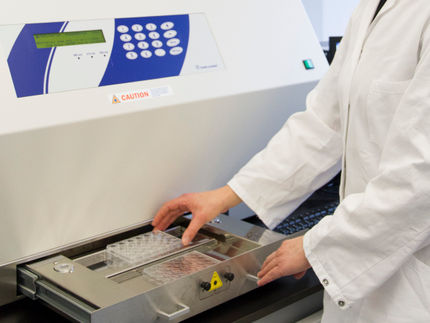Systematic testing of natural oils on in vitro skin models
A modular approach allows the team to simulate various skin types with different characteristics
For some years now, the trend in the cosmetics and skincare sector has been toward transparency and natural, sustainable ingredients. A growing number of consumers are rejecting cosmetics that contain petroleum-derived mineral oils and silicone oils. As a result, manufacturers are increasingly turning toward plant-based oils, fats, and waxes as substitutes. Working in tandem with Kneipp GmbH the Fraunhofer Translational Center for Regenerative Therapies TLC-RT at the Fraunhofer Institute for Silicate Research ISC is conducting the first-ever systematic tests of the general protective and regenerative effects of plant oils on the skin. The researchers are using a 3D skin model cultured in vitro for their work.
It has long been known that plant-based oils can have a positive influence on the skin. They also help to conserve resources and do not harm the environment, unlike refined mineral oils. And yet, until now there has never been a systematic study providing scientific proof of the effects of various natural oils. To bridge this gap, the Fraunhofer Translational Center for Regenerative Therapies TLC-RT at the Fraunhofer Institute for Silicate Research ISC is now working with Kneipp GmbH to systematically test natural oils to compare and demonstrate their influence on the skin. The team is using lab-grown epidermal 3D skin models, which simulate the top layer of skin, to study how the plant oils affect skin. “The objective of our research is to screen various plant-based oils and identify those that show superior effectiveness in this test model in terms of strengthening, protecting, and renewing the epidermal skin barrier. The ultimate goal is for this to serve as a basis for developing innovative cosmetic products,” says Dr. Dieter Groneberg, group leader of the Skin department at Fraunhofer TLC-RT in Würzburg. The team evaluated both carrier oils and oils claimed to have particular effects that are already contained in certain percentages as additives in oil-based skincare products and are very well known, along with substances that have been lesser known to date.
In vitro test models grown from human skin cells
The researchers at Fraunhofer TLC-RT grow their in vitro skin models from human skin cells, which can be used to identify harmful substances or demonstrate positive effects on the skin. A modular approach allows the team to simulate various skin types with different characteristics. In all, 50 plant oils were evaluated using the epidermal skin models.
Standardized testing using scientific methods
The oils were applied to skin models and then analyzed using a specific testing method with an eye to general, protective, and regenerative effects. To study the regenerative effect, for example, the epidermis — the skin’s outermost layer — was damaged and then treated with the oils. Then the researchers examined the skin to determine whether the oils had improved the skin’s protective function and/or regeneration. “During our in vitro tests on human skin cells, we were able to identify oils that have positive effects by strengthening, protecting, and helping to renew the skin barrier. This represents the first scientific proof of their emollient, protective, and regenerative effects,” Groneberg says. Some of the plant-based oils performed very well overall in strengthening, protecting, and regenerating the skin, while others were impressive in one out of these three areas. The positive test results for some oils, such as almond oil, give manufacturers a better window on the effectiveness of existing products, along with pointing the way forward for development of innovative and effective new products.
Most read news
Topics
Organizations
Other news from the department science

Get the analytics and lab tech industry in your inbox
By submitting this form you agree that LUMITOS AG will send you the newsletter(s) selected above by email. Your data will not be passed on to third parties. Your data will be stored and processed in accordance with our data protection regulations. LUMITOS may contact you by email for the purpose of advertising or market and opinion surveys. You can revoke your consent at any time without giving reasons to LUMITOS AG, Ernst-Augustin-Str. 2, 12489 Berlin, Germany or by e-mail at revoke@lumitos.com with effect for the future. In addition, each email contains a link to unsubscribe from the corresponding newsletter.






















































